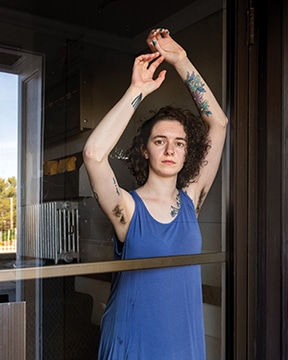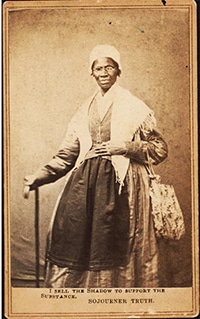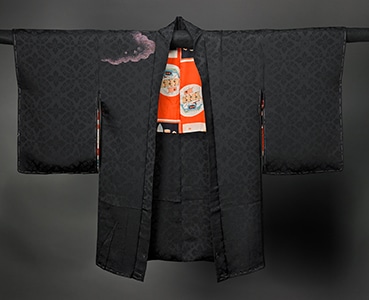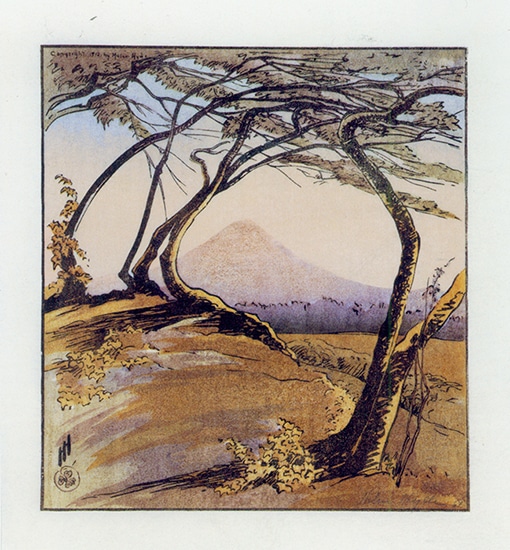Some of you may recall Rania Matar’s photographs in my 2016 exhibition, Aftermath: The Fallout of War. Rania’s annual return-visits to Beirut (her hometown) yielded moving, memorable images of war’s aftermath. Among them, her towering portrait of a war-torn street in Beirut, followed by shattered apartment interiors, and hopeful refugee children shining shoes on street corners. All of Matar’s photographs are “portraits” of places and spaces, and almost exclusively of women and girls. She engages people regardless of their age or circumstance. Fearless, she reaches them through conversation, easy laughter, and listening, asking about their lives, and evoking their stories through images. Eliciting intimacy and making community are her trademarks. Matar’s photographs are evidence of not just hardship, but resiliency. Her numerous projects can be seen at raniamatar.com.
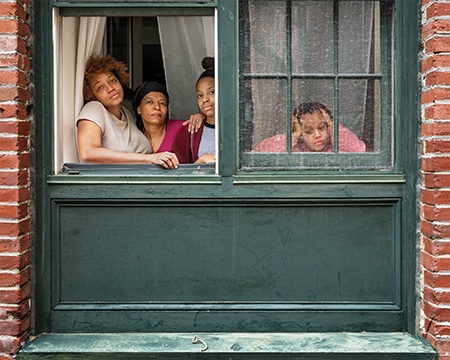
It was no surprise, then, to read a press release about a new Rania Matar series based on the pandemic, titled Across the Windows – Portraits During Covid-19. When the virus caused a shutdown, Rania found an opening out. It began by noticing the simplicity of a neighbor reading by her window. From this, the project was born. Calling for models on Instagram, she was overwhelmed with requests. They had to be within a 30-minute drive of Boston, but that soon changed. Using the window between them as mask and physical barrier, ordinary friends and beautiful strangers arrived at their windows at a prescribed time, wearing whatever they wished. Matar arrived with an unusual prop for a portraitist – a stepladder in case height was necessary. No one was rushed. The windows and doors became picture frames or stages. Her subjects posed themselves, often revealing a state of mind, or the need to conceal it. Many were pensive, others were loving. Throughout, the photographer could not get close to her subjects—no loose strand of hair or wrinkled sleeve could be adjusted, no manual re-positioning of the model’s chin or hands. Hearing was also difficult through the glass and masks. On top of it all, Matar began using a medium-format digital camera for the first time (she was strictly film-capture before this). She faced all kinds of challenges, yet the project took rapid shape. There were surprises, too: reflections in windows of trees (that chart the seasonal progression of the virus), changing skies (times of day; weather), and neighborhoods (the city’s varying forms). Like a double-exposure or glass-plate positive, they generated simultaneous inside/outside views mirroring the self-care, or self-reflecting essentialized moods of Matar’s subjects.
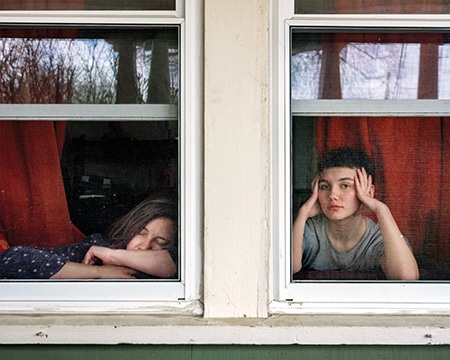
Across the Windows records an unprecedented moment in our anxious global experience. It also shows intimacy and connection. A hundred years from now, people will look at these (as we do at photographs of the 1918 Influenza), knowing what we don’t know now—that is, how it all turned out.
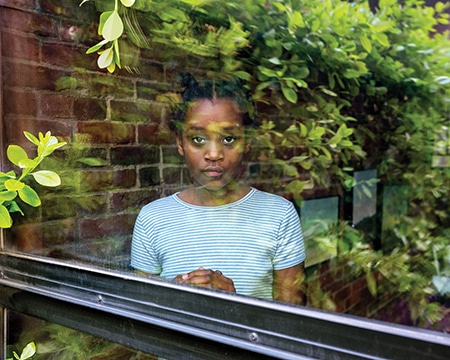
Recently, the Harn bought four of Rania Matar’s Across the Windows portraits. They will be exhibited in Breaking the Frame: Women Artists in the Harn Collections, an exhibition commemorating the Harn’s 30th Anniversary, Women’s Suffrage, and this unique, historical moment. Breaking the Frame is on view September 24, 2020 – May 2, 2021.
